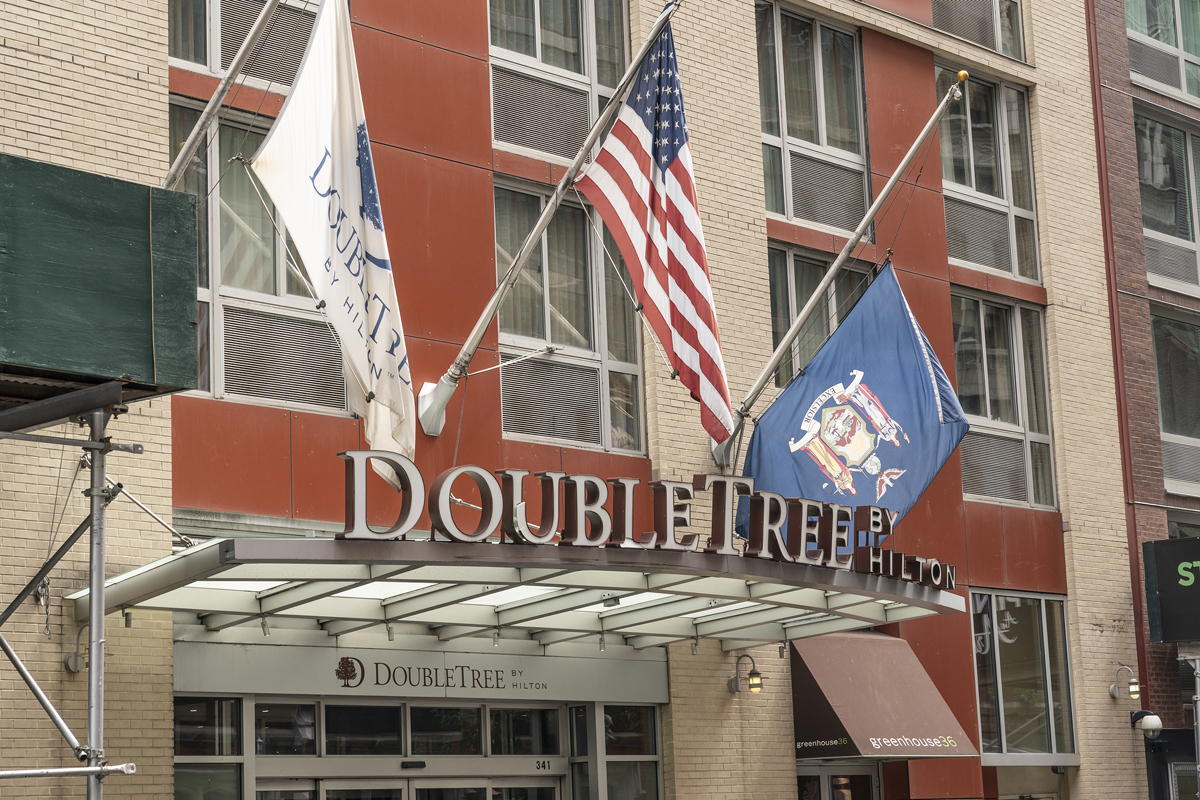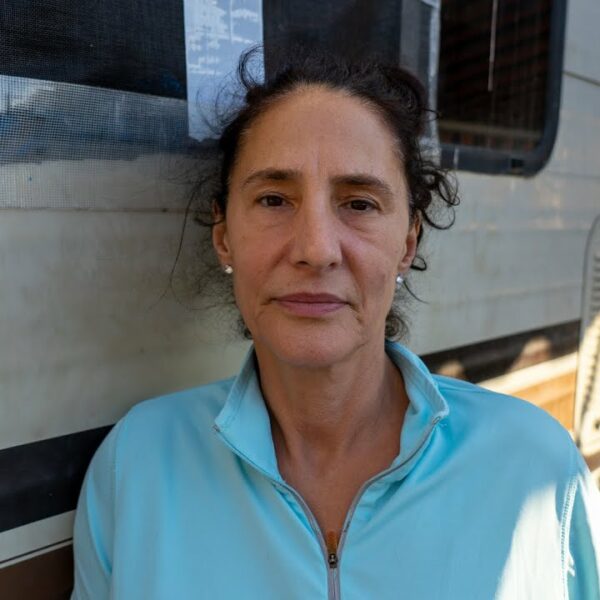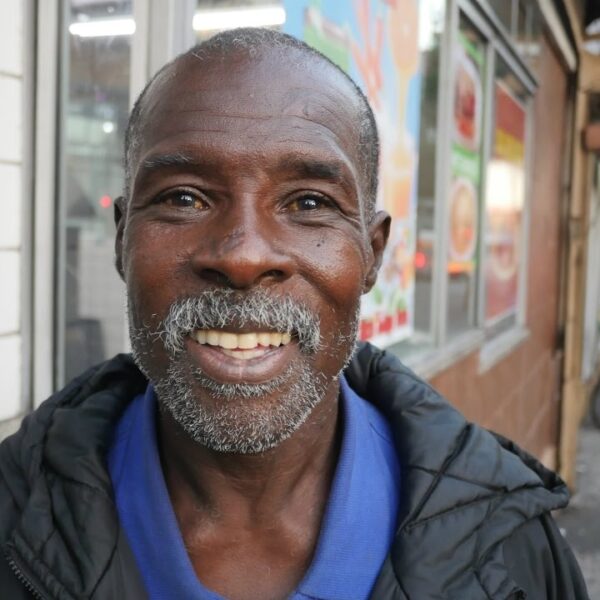Due to the spread of COVID-19, approximately 13,000 homeless adults reside in hotel rooms across New York City to safely social distance and isolate. For many homeless people who aren’t used to living in safe and stable environments, this move has been life-changing.
However, not everyone is happy. Some New York City residents living close to the hotels are fed up and believe their safety is being compromised.
New York Residents are Concerned
“It’s the drugs. We see people inebriated, there are registered sex offenders,” Upper West Side resident Alison Morpurgo said. Morpurgo is a mother of three teenagers and is worried about her family’s security and well being.
She claims that ever since three hotels in the neighborhood welcomed hundreds of homeless people, the area has seen new social problems.
Morpurgo belongs to a group called Upper West Siders for Safer Streets. The group has been gathering accounts and images of homeless people apparently passed out on street sidewalks and slumped over near restaurant tents. Some are photographed with their hands down their pants.
The Upper West Siders for Safer Streets claims in the Facebook group’s description:
“We are for homeless assistance and compassion, but we are against registered sex offenders and drug use in our community. Homeless or not.”
“Sometimes I go running in the morning and I’ll see, frankly, needles on the ground,” Morpurgo said.
It is unclear whether the images collected by the group are depicting homeless people living in the three local hotels. Still, members claim it’s clear that the city’s new policy isn’t working.
“We want to see change. We want to see safer streets. But also we want to see people get the services they need, which clearly we’re not seeing here,” Morpurgo said.
However, Mayor of New York City, Bill de Blasio’s administration, said the hotels located on the Upper West Side offer services to address substance abuse issues.
At the Lucerne Hotel situated on West 29th Street and Amsterdam Avenue, a nonprofit organization called Project Renewal claims to have 50 staff members offering counseling, medical, and recreation services to homeless people.
However, whether the services offered are of use is another story. One man who used to experience homelessness told NBC New York that he recently left one of the hotels run by another nonprofit in Queens. Apparently, no staff would check on residents at the hotel. He also said he witnessed a lack of safety and security around his hotel.
Creating a Compassionate Society
Not all homeless people have drug dependency issues, and it’s wrong to assume this.
A spokesman for New York City’s Department of Homeless Services said:
“New Yorkers experiencing homelessness are our neighbors – and the notion that they are not welcome in some neighborhoods for any reason is an affront to basic decency. We will not create gated communities within our city.”
There are 139 commercial hotels currently being used as shelters for homeless people across New York City. This includes 63 spots that just started housing people since the spread of COVID-19.
The decision to offer these hotels to homeless people during these challenging times has likely saved lives. With a lack of tourism since March, many of these hotel rooms would otherwise go unused.
Morpurgo claimed that the Upper West Side neighborhood has always been a welcoming community with homeless shelters. The current program isn’t helpful to homeless people because it doesn’t offer services to help them.
“The problem is, it is not helpful to anyone to house homeless people without offering services that are clearly needed based on what we are seeing on the sidewalks,” she said.
Is Moving Homeless People Back Into Shelters an Option?
Homeless people were moved out of shelters and from the streets because there was an obvious problem. People were living closely, making them vulnerable to contracting and spreading COVID-19.
Bill de Blasio stated that while this problem won’t occur again, officials must start moving homeless people from hotel rooms.
However, advocates don’t want to see homeless people moved back to shelters anytime soon. Arguably moving vulnerable homeless peoples into crowded shelters again would be an enormous health risk to the individuals involved and public safety. People living in homeless shelters share dorm rooms, bathrooms, dining areas, and other indoor spaces that are often without significant ventilation.
Since the spread of COVID-19, 104 homeless New Yorkers have died from the virus. Moving people back to busy shelters too soon could lead to more unnecessary deaths.
However, a spokesperson for the Department of Homeless Services informed NY1 that the city would advise communities when it’s safe to move homeless people out of the hotels. They added that they don’t plan on using hotels to house homeless people on an ongoing basis. De Blasio did not give a timeline for any moves.
What Are the Solutions?
There are many charities, volunteer groups, churches, and government agencies that work to improve the lives of homeless people suffering from substance use disorders and mental illness.
For a cooperative and harmonious community, we must provide homeless people with effective outreach programs that help them connect with services that can improve their lives.
There is often a lack of affordable and confidential mental health care services available. Organizations like Care for the Homeless in New York City offer emergency intervention, counseling, case management, and other services to help homeless people experiencing mental illness.
Case managers, therapists, nurses, and physicians are also required to help homeless people with medication management. Psychiatric medicine can be effective at treating the symptoms of various mental illnesses. This includes schizophrenia, anxiety, depression, bipolar disorder, and other severe types of mental illness. In many cases, homeless people require the right structure and motivation to follow a medical treatment program.
Substance abuse treatment is necessary to help those with drug or alcohol misuse issues. Detox, rehab, counseling, 12-step meetings, and medication management are some services offered to help them recover from addiction.
With the right services offered alongside housing in hotels, homeless people should be able to receive the help they need to avoid residents becoming worried about their behavior. But no matter what, in a compassionate and inclusive society, all members should be treated with dignity and respect. This is no matter what their financial condition or health status may be.
Suppose we can meet the basic needs of homeless people, offering them shelter, food, and healthcare. In that case, we can give them the security and safety they need to remain consistent with treatment for substance abuse and mental illness.













